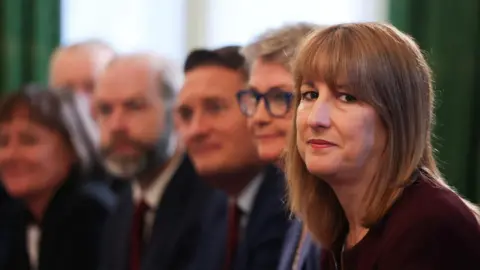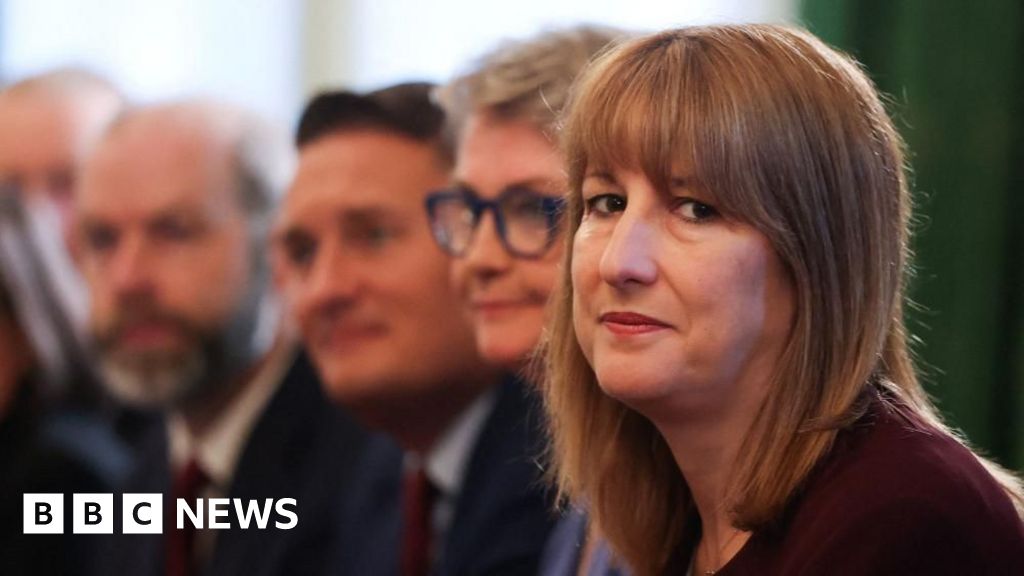Faisal IslamEconomics editor
 PA Media
PA Media
Rachel Reeves has told her cabinet colleagues that government departments will have their access to the Treasury’s emergency funds limited ahead of the budget, BBC News understands.
The £9bn Treasury Reserve, designed to be used for “genuinely unforeseen, unaffordable and unavoidable pressures” has recently been used to fund higher public sector pay and compensation payouts.
In a letter to ministers, the chancellor said Treasury would only consider providing reserve funds to departments that have already maximised their savings.
It comes less than 11 weeks before Reeves is set to deliver Labour’s Budget amid mounting pressure to boost economic growth while balancing public finances.
The aim of restricting reserve access is to help Reeves stick to her borrowing rules by reducing government borrowing and keep department spending within totals announced at the June Spending Review.
She also warned that any funds borrowed from the reserve would have to be repaid.
The chancellor will outline the government’s tax and spending plans for everything from hospitals and schools to infrastructure and defence in the Budget on Wednesday 26 November.
Economists have previously warned that she will need to lift taxes or make spending cuts to meet her borrowing rules, which include having day-to-day government costs paid for through tax income instead of borrowing by 2029-30.
Head of the Confederation of British Industry Rain Newton-Smith said chancellor “must commit to tax reform, not just tax rises” in an opinion piece in the Guardian.
Businesses have faced ongoing cost pressures following April’s increased employer National Insurance Contributions and the National Living Wage as well as continuing price increases.
“The chancellor cannot raid corporate coffers again so she must look elsewhere, embracing long-term strategic tax reforms rather than maintaining a slavish adherence to manifesto promises on tax or ideas based on the world as it was 18 months ago,” Ms Newton-Smith said.
Reeves told her colleagues that the focus over Autumn would be on “reducing inflation, controlling spending and kickstarting growth”.
She referenced recent bond market fragility “in many advanced economies” at cabinet on Tuesday saying “stability is more important than ever to underpin growth in a volatile global environment, and that means living within our means.”
The chancellor told colleagues: “I do not think there is anything progressive about spending £100 billion a year on paying off debts accrued by previous governments.”
Reeves added she would rather spend more of that money on “cutting hospital waiting lists, tackling illegal migration and keeping our country safe.”
While the tough message was delivered to cabinet, it was also aimed at the markets and her own backbench MPs.
In the Commons on Tuesday she said she agreed that Labour backbenchers should “resist the temptation to duck tough choices on spending”.
The Spending Review already reduced the amount of the Reserve back from normal levels of about £14bn a year, with the Institute for Fiscal Studies arguing that it “left little space to deal with unforeseen pressures”.
Forecasts for how much money Reeves needs to find in the upcoming to meet her self-imposed borrowing rules vary widely.
Some estimates putting the figure at around £25bn while an estimate from the National Institute of Economic and Social Research put the figure at £50bn.
In an exclusive interview with the BBC last week, Reeves played down the larger figure and said she aimed to “get the balance right” at the Budget.
Reeves has two rules on government borrowing, which she has repeatedly said are “non-negotiable”. These are:
day-to-day government costs will be paid for by tax income, rather than borrowing by 2029-30to get debt falling as a share of national income by the end of this parliament in 2029-30


